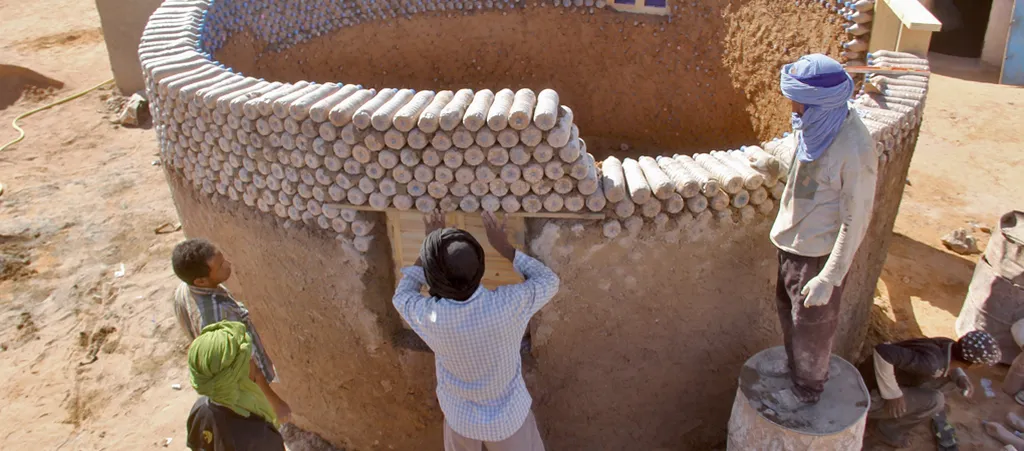In a groundbreaking stride towards sustainable construction, researchers have transformed discarded plastic bottles into lightweight synthetic sand (LSS), paving the way for eco-friendly mortars that could revolutionize the industry. This innovative approach, detailed in a recent study published in *Construction Materials* (translated from French), not only addresses the pressing issue of plastic waste but also offers a viable alternative to traditional sand-based mortars.
At the helm of this research is Abdelhak Badache, a civil engineering expert from the LABMAT Laboratory at ENPO Maurice Audin in Oran, Algeria. Badache and his team have developed a method to convert dune sand and recycled PET bottles into LSS through a controlled thermal treatment process, followed by crushing and sieving. This LSS is then used to replace natural sand in mortar production, aligning perfectly with the principles of the circular economy.
“The idea was to find a way to repurpose plastic waste into something useful for the construction industry,” Badache explains. “By doing so, we can reduce the environmental impact of both plastic waste and natural sand extraction.”
The study evaluated the physico-mechanical properties of the resulting mortars, revealing several promising findings. While the incorporation of LSS reduces the density of the mortar by 4–23%, it also lowers material and logistical costs. Although compressive strength decreases by 35–70%, mortars with up to 25% LSS retain 80% of their strength, making them suitable for structural applications. Additionally, LSS enhances ductility and reduces dynamic modulus, providing beneficial flexibility for various construction uses.
One of the most significant findings is the improved thermal performance of the LSS mortars. With a 4–18% reduction in thermal conductivity, these mortars offer better insulation properties, which could be particularly beneficial for the energy sector. “This could lead to more energy-efficient buildings, reducing heating and cooling costs,” Badache notes.
The study also highlights the enhanced durability of LSS mortars, with a progressive decrease in sorptivity of up to 46% and no susceptibility to alkali–silica reaction (ASR). This makes them an attractive option for long-term construction projects.
The implications of this research are far-reaching. By repurposing plastic waste into a valuable construction material, the study contributes to sustainable material management and reduces the environmental footprint of the construction sector. As the world grapples with the challenges of plastic waste and resource depletion, innovations like LSS mortars offer a glimmer of hope.
“This research is a significant step towards a more sustainable future,” Badache concludes. “It shows that with the right approach, waste can be transformed into a valuable resource, benefiting both the environment and the construction industry.”
As the construction industry continues to evolve, the adoption of eco-materials like LSS could shape future developments, driving the sector towards a more sustainable and circular economy. With further research and commercialization, these innovative mortars could become a staple in construction projects worldwide, contributing to a greener and more efficient built environment.

